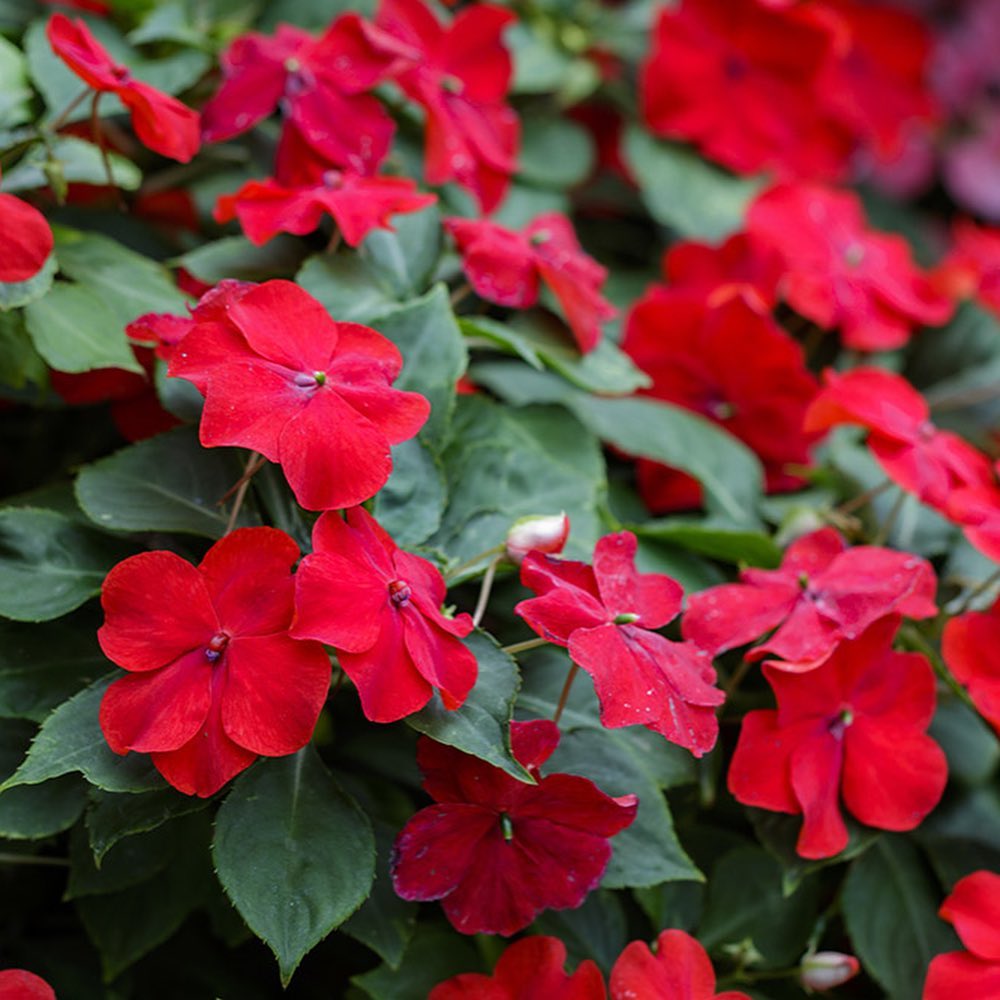Learn about Impatiens flowers - easy-to-grow, colorful plants perfect for shady spots. Discover types, care tips and how to enjoy these beautiful blooms in your garden.
Have you ever wanted to add some color to the shady areas of your garden? Look no further than Impatiens flowers! These popular plants are known for their bright, cheery blooms and ability to thrive in low-light conditions. Let’s explore everything you need to know about growing and enjoying Impatiens.
Here’s an easy and verified chart for Impatiens:
CategoryDetailsBotanical NameImpatiens spp.Common NameImpatiens, Busy LizziePlant TypeAnnual or perennial (depending on species)Hardiness ZoneZones 10-11 (usually grown as annuals in colder zones)Sun ExposurePart shade to full shadeSoil TypeMoist, well-draining soilWatering NeedsModerate; prefers consistently moist soilGrowth HabitMounding, spreadingHeight/Spread6 inches to 2 feet tall, spread of 6-18 inchesSpecial FeaturesBrightly colored flowers in shades of pink, red, purple, white, or orange; blooms from spring to fall; shade-loving; deer resistant; suitable for containers, borders, and hanging baskets
What are Impatiens?

Impatiens are annual flowering plants that come in many colors. They’re often called “busy Lizzies” because they bloom non-stop from spring to fall. These plants are perfect for gardeners who want low-maintenance flowers that look great all season long.
Types of Impatiens
There are several types of Impatiens you can choose from:
- Traditional Impatiens (Impatiens walleriana): The most common type, with small flowers in various colors.
- New Guinea Impatiens: Larger flowers and leaves, more sun-tolerant.
- Double Impatiens: Flowers that look like mini roses.
- Trailing Impatiens: Great for hanging baskets and window boxes.
Where to Plant Impatiens
Impatiens love shade! They’re perfect for:
- Under trees
- North-facing gardens
- Porches and patios
- Container gardens
These flowers do best in areas that get morning sun and afternoon shade. Too much direct sunlight can burn their leaves and reduce blooming.
How to Plant Impatiens
Follow these steps to plant your Impatiens:
- Choose a shady spot with well-draining soil.
- Dig holes about 6-12 inches apart.
- Gently remove the plant from its container.
- Place the plant in the hole and fill with soil.
- Water thoroughly after planting.
Caring for Impatiens
Impatiens are easy to care for, but they do have some basic needs:
Water:
Keep the soil moist but not soggy. Water more often during hot, dry periods.
Fertilizer:
Feed your plants every 2-3 weeks with a balanced, water-soluble fertilizer.
Pruning:
Pinch off dead flowers to encourage more blooms.
Pests and Diseases:
Watch out for aphids and fungal diseases. Remove affected parts and treat with appropriate products if needed.
Winter Care:
In cold climates, Impatiens are typically grown as annuals. They can’t survive frost, so replant each spring.
Using Impatiens in Your Garden
Here are some fun ways to enjoy Impatiens:
- Mass plantings: Create a colorful carpet of flowers under trees.
- **Container gardens: **Mix different colors in pots or window boxes.
- Hanging baskets: Use trailing varieties for a stunning display.
- Border plants: Edge shady pathways with a row of Impatiens.
Impatiens Colors and Meanings
Impatiens come in many colors, each with its own meaning:
- Pink: Love and compassion
- Red: Strength and enthusiasm
- **White: **Purity and innocence
- Purple: Respect and admiration
- Orange: Joy and creativity
Choose colors that speak to you or match your garden’s theme!
Growing Impatiens from Seeds
If you want to try growing Impatiens from seeds:
- Start seeds indoors 8-10 weeks before the last frost date.
- Use a seed starting mix and keep soil moist.
- Provide bright, indirect light.
- Transplant seedlings outdoors after the danger of frost has passed.
Impatiens make a great addition to any shady garden. With their bright colors and easy care, they’re sure to bring joy all season long. Whether you’re a beginner or an experienced gardener, give Impatiens a try in your shady spots!
For more information on gardening and plant care, visit the USDA Plant Hardiness Zone Map to determine the best plants for your region.
For more gardening tips and plant care guides, visit usagardenhub.com.

